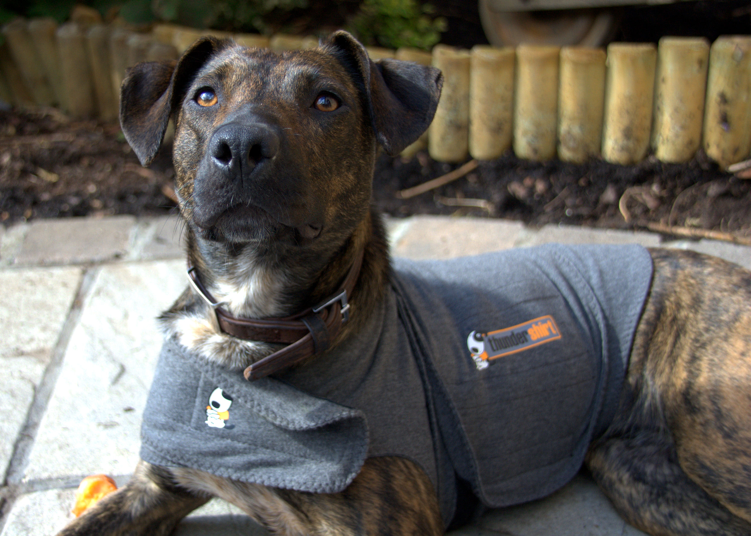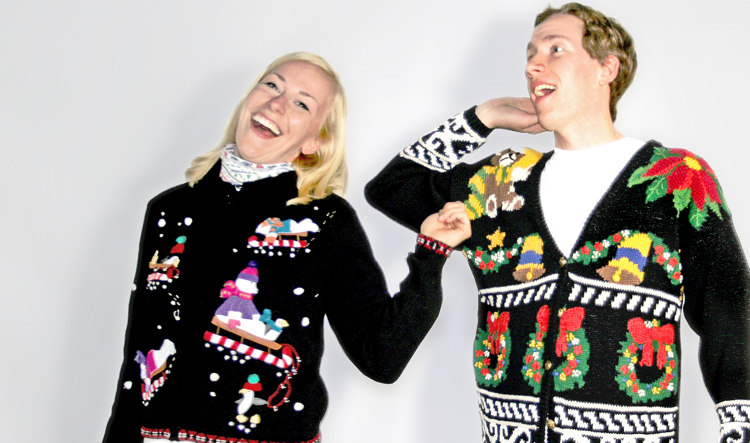We’re looking forward to a well-earned festive break this Christmas. Plenty of delicious food, pretty lights, and a chance to catch up with family and friends.
There’s plenty to enjoy about Christmas and there are also plenty of things to be mindful of when it comes to keeping your dog safe and happy. We’ve rounded up the best advice covering topics from food to decorations, and how to ensure your dog gets enough exercise this festive season.
Food dogs can enjoy
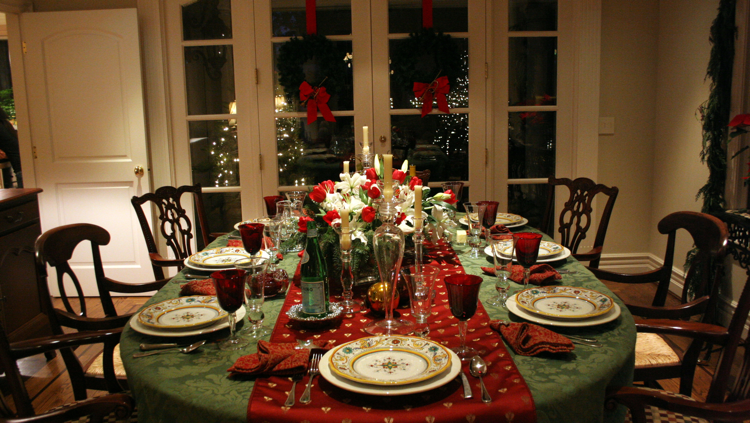
For us humans, one of the best things about Christmas just has to be all the food. We can’t wait to stuff our faces full of lots of delicious food, and then sit around moaning about how much we’ve eaten.
As you probably know, many human foods, chocolate being a prime example, are not safe for dogs to eat. When it comes to Christmas dinner and other special meals and treats this time of year, it might be best to avoid human food altogether – there are a lot of things you should avoid. For example, turkey meat is a healthy option for dogs, providing that it’s bone free and skinless. It’s also a good idea to cook it separately from other food in your Christmas feast because items like salt, fat, butter, nuts are a no-no when it comes to doggy diets.
Let’s take a quick look at some of the festive food that you can share with your dog:
- Turkey: tasty, lean and a firm favourite – ensure it’s cooked separately from all your yummy human dinner trimmings, including; fat, butter, fatty skin, salt, cheese, onions and garlic.
- Duck and goose meat is also safe to eat – just remember to give your pooch a boneless portion as cooked bones can splinter and cause internal injury or choking.
- Salmon: cooked salmon is a great healthy treat for your dog, and another favourite for Christmas brunches and dinners. Avoid smoked salmon, though – because it’s cured and not cooked it can pose health risks to your dog.
- Winter vegetables: brussel sprouts, forever dividing families and popular opinion, are actually a good option for your dog (don’t tell the kids!), potatoes, sweet potatoes, green beans and parsnips are also safe and tasty. If these are being fed as leftovers, make sure to rinse off oil and fat, or simply prepare them separately, avoiding contact with the dangerous foods we’ve already mentioned.
- Holly, ivy mistletoe: all of these can be harmful or toxic to dogs.
- Tinsel: stray tinsel strands can pose a threat to dogs – especially if they’re eaten.
- Christmas tree: we’d recommend you get a non-drop tree as the needles can be harmful to dogs.
- Watch YouTube: there are several videos of fireworks sounds online. Here’s one – you can watch it with your dog, and show him that it’s nothing to worry about by keeping calm yourself, giving your dog lots of affection, and even playing a game or giving them a treat.
- Thundershirts: these snug-fitting jackets help keep some dogs calm – and have been independently studied by scientists revealing that these garments have an 80% success rate!
- Playtime: why not invest in some new dog toys (it is Christmas, after all!) We can highly recommend getting your paws on a Kong toy – fill it with treats and it’ll keep your dog entertained for hours!
Remember: avoid overfeeding your dog – even though it might be tempting to offer your pooch lots of extra nibbles and treats, you won’t be doing their health any favours.
For a quick refresh of the human foods, drinks and treats you should never give your dog, check out our handy infographic.
Dog-proof decorations
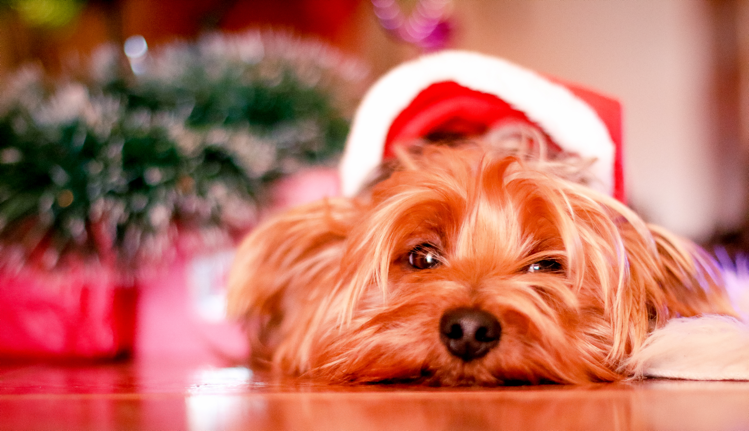
We all know that dogs are in many ways like small children, they like to explore the world with their mouths, paws and noses. And in this festive season, there are plenty of hazards around. Here are a few things to avoid in your festive decorations:
You may also want to elevate or secure the tree so that dogs aren’t tempted to pee on it or try to grab the branches. If you’re decorating your tree with lights, keep the cables out of reach of your dog, too.
Fireworks
Christmas is really several parties all rolled into one so we couldn’t write an article about it without thinking forward to New Year’s Eve. It’s another popular occasion for parties, meals, and having all your friends over to pop open a bottle of New Year’s fizz. We’re looking forward to the big countdown and an epic fireworks display here in London or on TV. However, these types of celebrations don’t go down too well with dogs. In fact, the RSPCA reports that around 45% of UK dogs show signs of fear during fireworks.
Here’s a quick recap of how to make New Years Eve fireworks a breeze for your dog:
Want more in-depth tips on how to survive fireworks as a dog owner? We’ve got an article for you.
Parties
‘Tis the season. Dinner parties, full houses, all bringing with them lots of loud noises and excitement. Dogs can find these distressing or overwhelming; over-excitable pups will struggle to know what to do with themselves. Why not book a dog sitter if you’re planning to attend or host a party, rather than leaving your dog alone or in danger of becoming overwhelmed by the crowd. Top animal welfare charities, including the RPSCA, recommend that you never leave your dog alone for more than four hours. Plus, you’ll be able to sleep off the late night and eggnog in the morning while your dog buddy is giving your pooch their morning walk.
Extra walks, love and attention
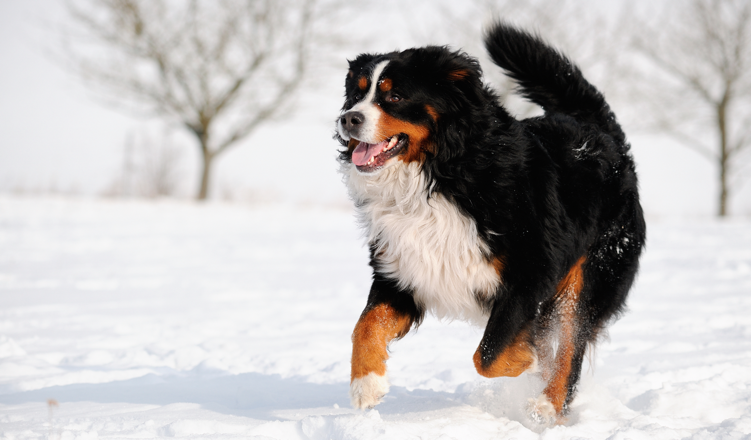
One of the special things about this time of the year for many of us is having friends and family close. At DogBuddy HQ many of us are travelling far and wide to be with family and we’re sure to be greeted with plenty of hugs and kisses from our Mums who we probably haven’t called nearly enough. Just like us, our dogs need plenty of love and attention all year round and while we’re not sure they understand the concept of Christmas, they can get excited with more people around.
If you’re lucky enough to have spare time and plenty of dog loving family members coming to your place this Christmas, your dog will probably get plenty of what they crave. But if you struggle to find time for walkies between basting the turkey, wrapping presents and making sure everyone’s glass of eggnog is topped up – then your dog needs a dog buddy.
Your dog’s exercise needs will vary depending on their age, health and breed. But most dogs will need between 30 minutes to two hours exercise a day; if your dog is smaller than most and low-energy, like a Pug for example, then finding the time for walkies shouldn’t be too hard. But if you own a high energy dog like a Border Collie, Lab, or Springer Spaniel, you’ll need to keep up roughly two hours of exercise a day to keep your dog healthy. If you’ve got your hands full with Christmas hosting, why not book a local dog walker with DogBuddy?
Over to you: what do you do to keep your dog happy, safe and pampered at Christmas? Let us know in the comments below.
